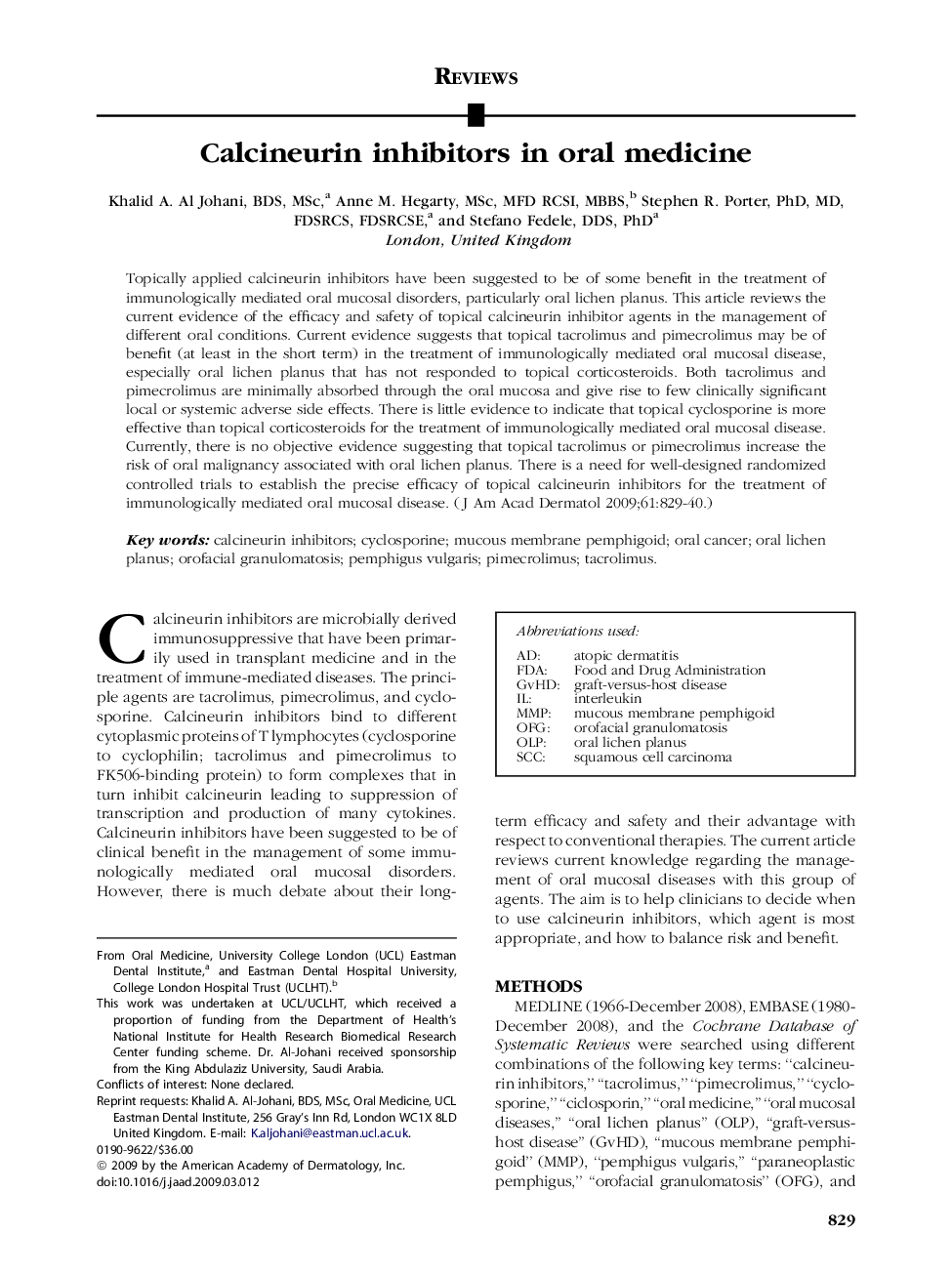| Article ID | Journal | Published Year | Pages | File Type |
|---|---|---|---|---|
| 3209059 | Journal of the American Academy of Dermatology | 2009 | 12 Pages |
Topically applied calcineurin inhibitors have been suggested to be of some benefit in the treatment of immunologically mediated oral mucosal disorders, particularly oral lichen planus. This article reviews the current evidence of the efficacy and safety of topical calcineurin inhibitor agents in the management of different oral conditions. Current evidence suggests that topical tacrolimus and pimecrolimus may be of benefit (at least in the short term) in the treatment of immunologically mediated oral mucosal disease, especially oral lichen planus that has not responded to topical corticosteroids. Both tacrolimus and pimecrolimus are minimally absorbed through the oral mucosa and give rise to few clinically significant local or systemic adverse side effects. There is little evidence to indicate that topical cyclosporine is more effective than topical corticosteroids for the treatment of immunologically mediated oral mucosal disease. Currently, there is no objective evidence suggesting that topical tacrolimus or pimecrolimus increase the risk of oral malignancy associated with oral lichen planus. There is a need for well-designed randomized controlled trials to establish the precise efficacy of topical calcineurin inhibitors for the treatment of immunologically mediated oral mucosal disease.
